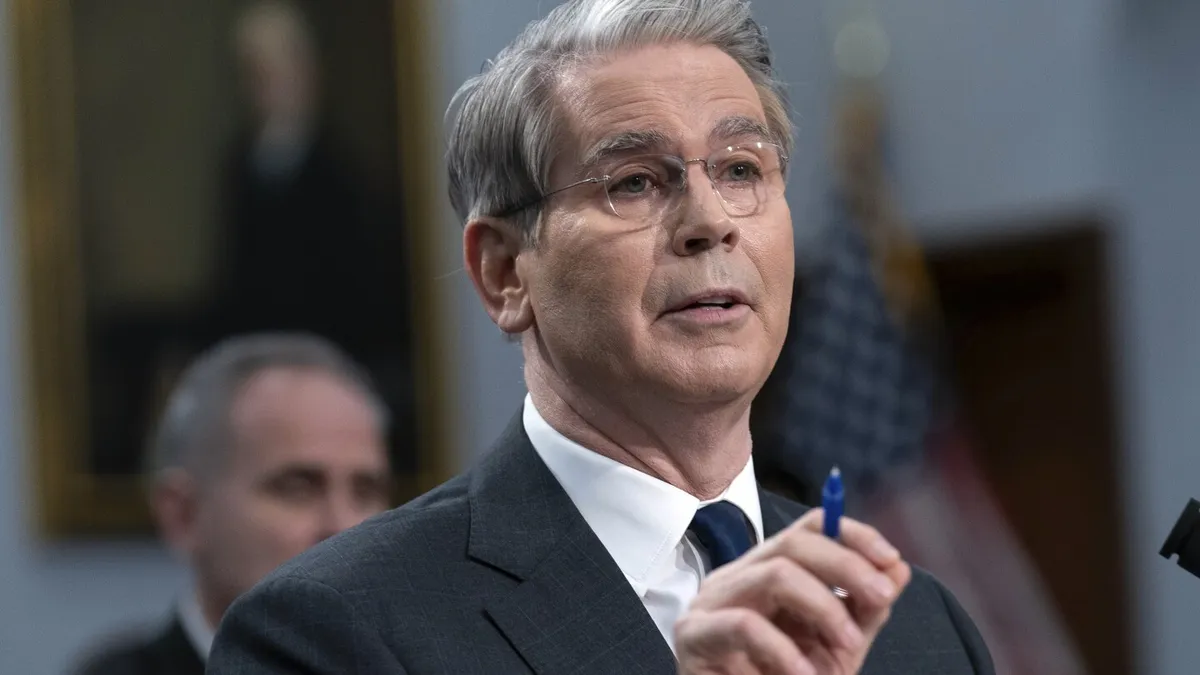
In a significant diplomatic development, top U.S. officials are scheduled to engage in high-level discussions with a Chinese delegation this weekend in Switzerland. This meeting marks the first major dialogue between the two nations since former President Donald Trump initiated a contentious trade war through the imposition of steep tariffs on imports. Treasury Secretary Scott Bessent and U.S. Trade Representative Jamieson Greer will meet with their Chinese counterparts in Geneva, as announced by the Trump administration on Tuesday.
The backdrop to this meeting is an increasing sense of anxiety within the U.S. market regarding the effects of these tariffs on the pricing and availability of consumer goods. China, the world's largest exporter and the second-largest economy, has been particularly hard-hit by these trade policies. Following Trump's announcement of “Liberation Day” tariffs on April 2, China retaliated with its own tariffs, a response that Trump interpreted as a sign of disrespect. Since then, both nations have escalated tariffs, with current U.S. tariffs on Chinese goods reaching an astounding 145%, while Chinese tariffs on U.S. goods stand at 125%.
As the tariff war intensifies, American companies have begun to cancel orders from China and delay expansion plans. The economic implications are becoming increasingly dire, prompting U.S. officials to seek dialogue. Bessent emphasized the necessity of these talks, stating on Fox News’ “The Ingraham Angle” that “China has been the missing piece” in U.S. trade negotiations. He warned that the current high tariff levels are “the equivalent of an embargo” and asserted that the goal is to achieve fair trade, not a complete economic decoupling.
Previously, President Trump claimed that negotiations were underway to lower tariffs, a statement that was met with skepticism in Beijing. Chinese officials have insisted that the U.S. must first reduce these hefty tariffs. On Tuesday, the Chinese Commerce Ministry confirmed the upcoming meeting, stating that they had carefully evaluated U.S. information before agreeing to the dialogue. A ministry spokesperson underscored that China would not compromise its principles or global equity in pursuit of any agreement.
Economists widely agree that the costs associated with tariffs will ultimately be passed on to consumers, resulting in higher prices for essential goods such as automobiles, groceries, and housing. This inflationary pressure is already weighing heavily on U.S. consumers, who are facing the most significant economic challenges since the onset of the COVID-19 pandemic. With growing concerns about a potential recession, the stakes for these trade talks are even higher.
Wendy Cutler, a former U.S. trade official and current vice president of the Asia Society Policy Institute, described the upcoming meeting as a positive step. She noted, “As the first face-to-face meeting between senior U.S. and Chinese officials since Trump’s inauguration, it’s an important opportunity to discuss unwinding some tariffs and addressing mutual concerns.” Cutler cautioned, however, that immediate results should not be expected, emphasizing that this will be a gradual process.
In addition to their discussions with Chinese officials, Bessent and Greer are also expected to meet with Swiss President Karin Keller-Sutter. Both U.S. representatives had previously engaged with their Chinese counterparts before the escalation of the trade war. Greer stated that he found his prior conversation with his Chinese counterpart to be constructive, clarifying that the U.S. strategy is aimed at strengthening the American economy rather than encircling China.
Overall, these upcoming talks represent a critical juncture in U.S.-China relations, as both nations seek to navigate the complexities of their trade relationship amid ongoing economic pressures.